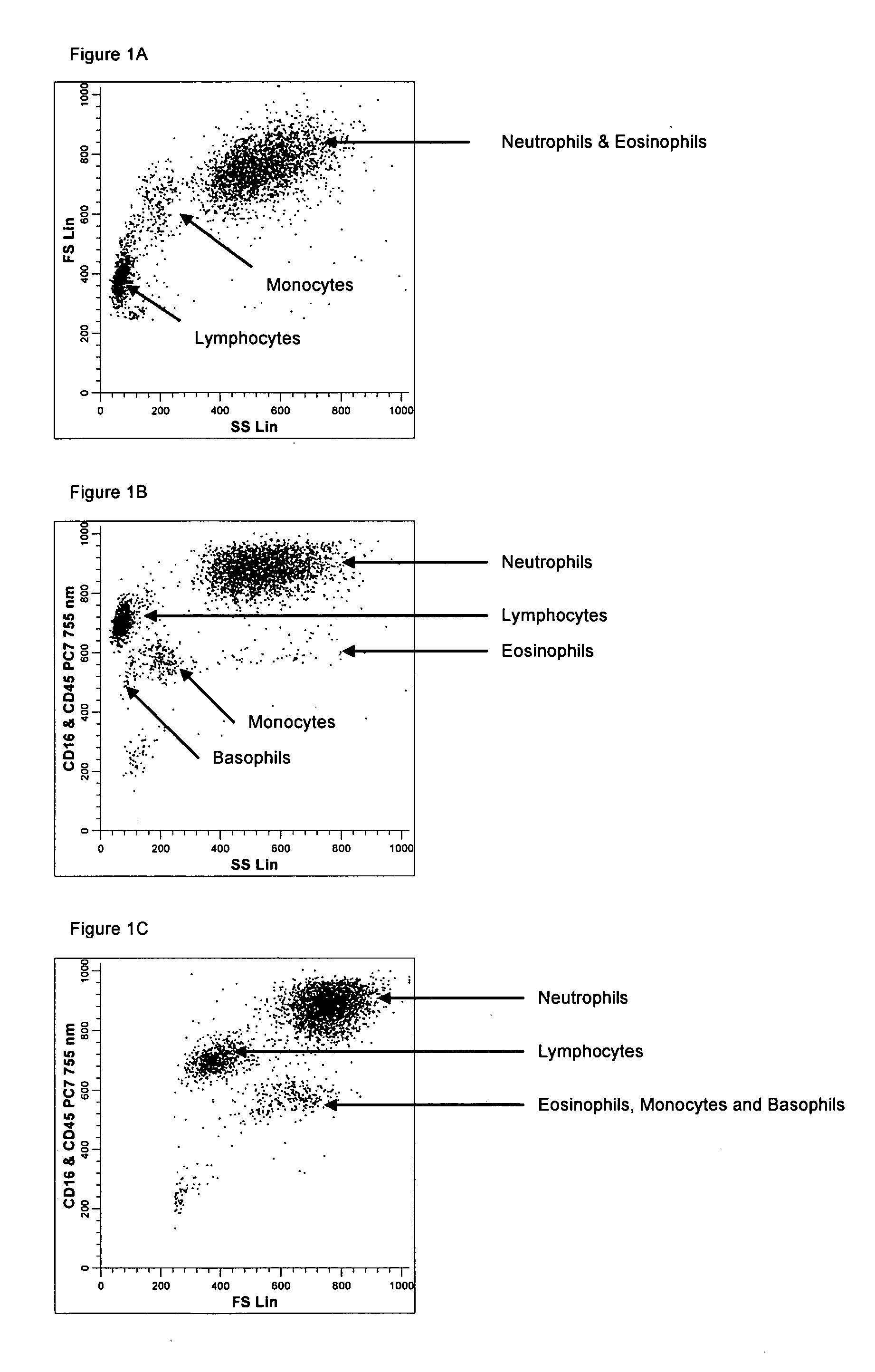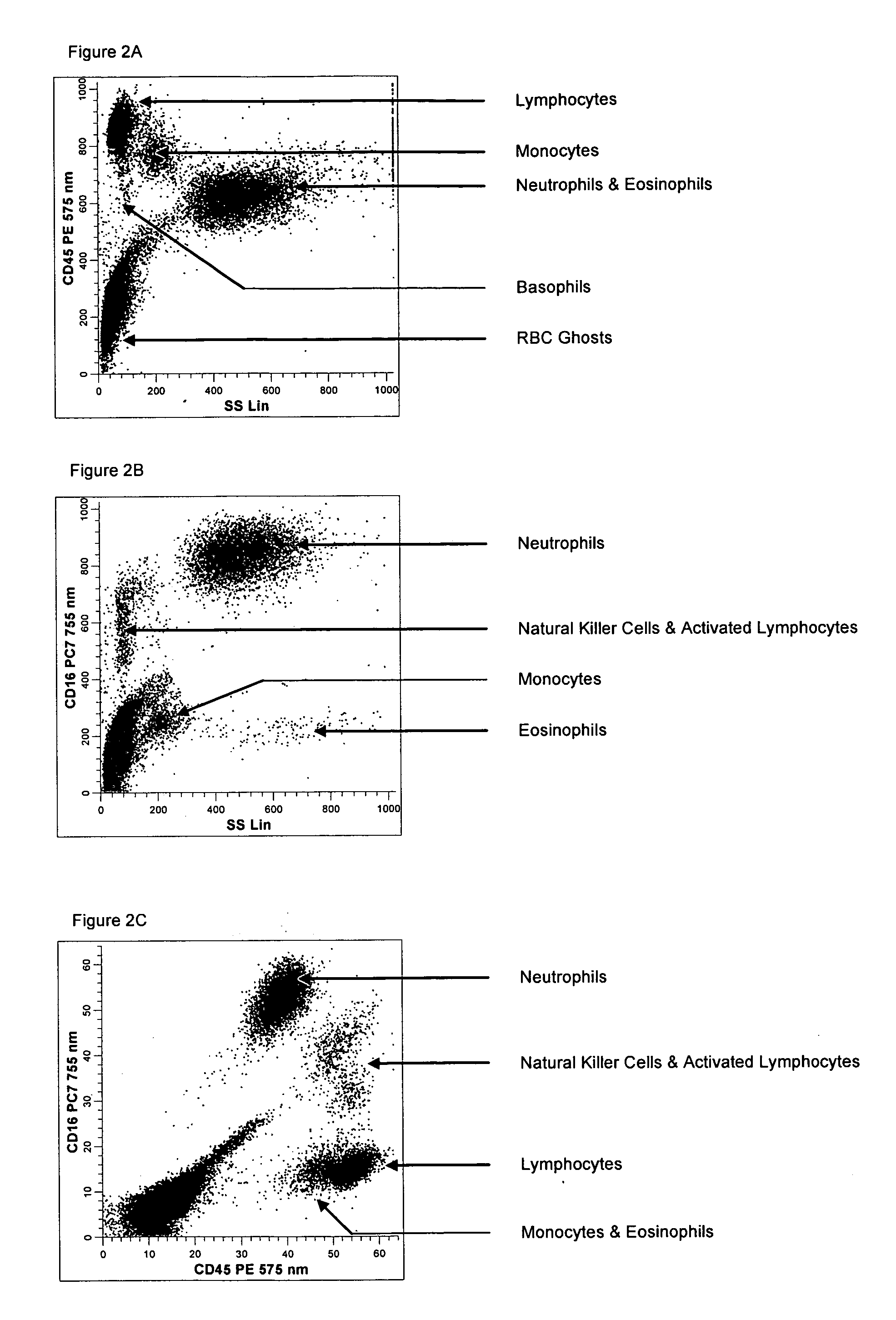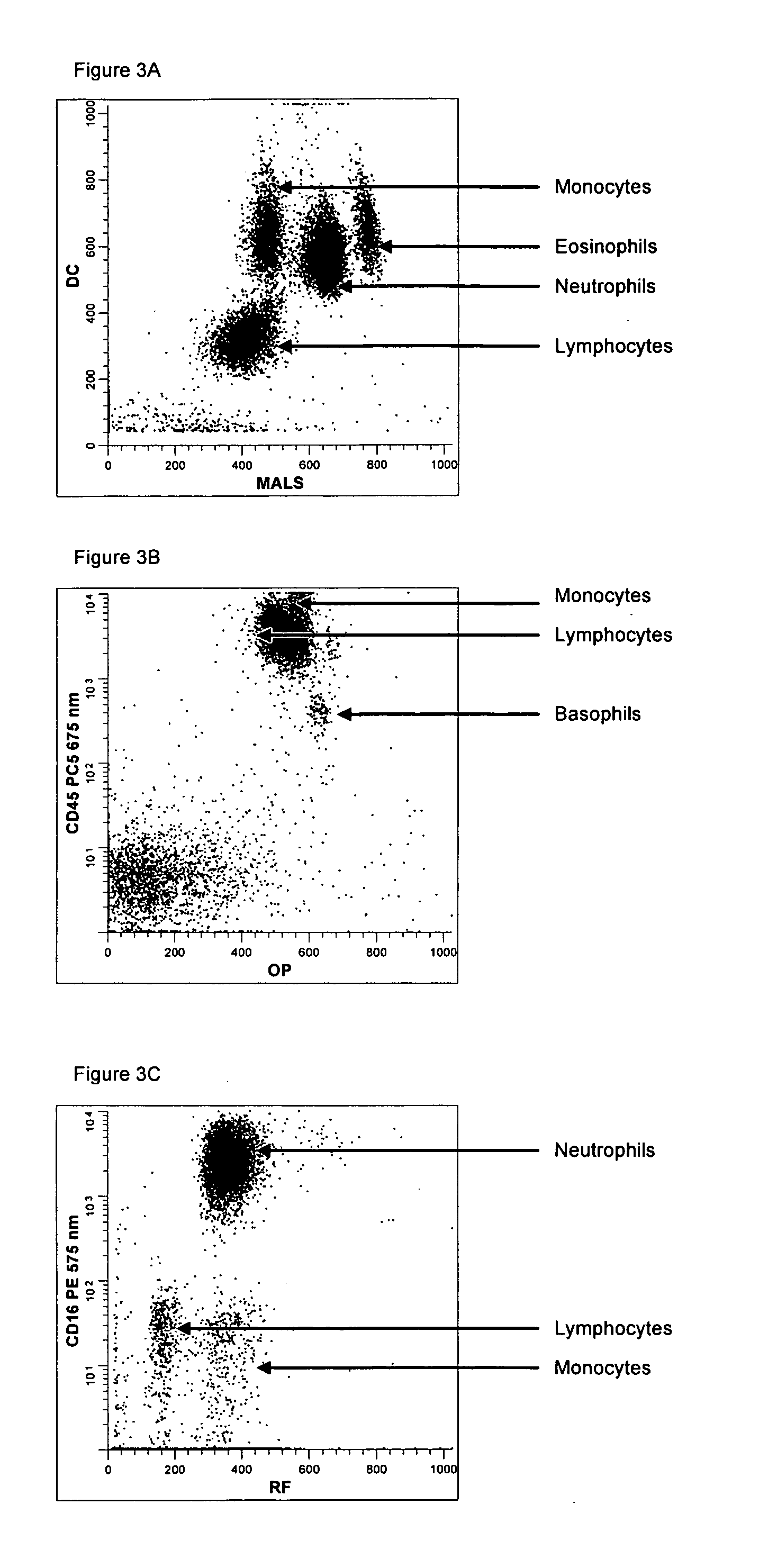Method for a fully automated monoclonal antibody-based extended differential
a fully automated, monoclonal antibody technology, applied in chemical methods analysis, instruments, biomass after-treatment, etc., can solve the problems of inability to accurately perform a 5-part white blood cell differential, inability to readily differentiate multiple subsets of cells in a single sample, and currently available hematology systems still suffer from common shortcomings, etc., to achieve a high degree of sensitivity and specificity, and the effect of great advances in hematocellular analysis
- Summary
- Abstract
- Description
- Claims
- Application Information
AI Technical Summary
Benefits of technology
Problems solved by technology
Method used
Image
Examples
example 1
[0137] A single reaction mixture was prepared by reacting 100 μL of normal human peripheral blood with about 1 μg of anti-CD45PC7, i.e., a first antibody labeled with a first fluorochrome having a first emission spectrum, said first antibody binding to an antigenic determinant that is differentially expressed on populations of leukocytes and non-leukocytes and about 1 μg of anti-CD16-PC7, i.e., an additional antibody labeled with same fluorochrome having the same emission spectrum. The anti-CD16 antibody binds to an antigenic determinant that is differentially expressed on populations of mature and immature granulocytes or myeloid cells. This reaction mixture is mixed briefly and incubated at room temperature for approximately 10 minutes. The reaction was performed in the absence of a nucleic acid stain.
[0138] This reaction mixture is then reacted for about 8 seconds with the lytic system (about 600 μL of Immunoprep™ reagent A; see U.S. Pat. No. 5,030,554) that differentially lyses...
example 2
[0143] A single reaction mixture was prepared by reacting 100 μL of normal human peripheral blood with about 1 μg of anti-CD45PE, i.e., a first antibody labeled with a first fluorochrome having a first emission spectrum, said first antibody binding to an antigenic determinant that is differentially expressed on populations of leukocytes and non-leukocytes and about 1 μg of anti-CD16-PC7, i.e., an additional antibody labeled with a second fluorochrome that has an emission spectrum distinguishable from the emission spectrum of the fluorochrome PE. The anti-CD16 antibody binds to an antigenic determinant that is differentially expressed on populations of mature and immature granulocytes or myeloid cells. This reaction mixture is mixed briefly and incubated at room temperature for approximately 10 minutes. The reaction was performed in the absence of a nucleic acid stain.
[0144] This reaction mixture is then reacted for about 8 seconds with the lytic system (about 600 μL of Immunoprep™ ...
example 3
[0147] A single reaction mixture was prepared by reacting 200 μL of normal human peripheral blood with about 1 μg of anti-CD45PC5, i.e., a first antibody labeled with a first fluorochrome having a first emission spectrum, said first antibody binding to an antigenic determinant that is differentially expressed on populations of leukocytes and non-leukocytes and about 1 μg of anti-CD16-PE, i.e., an additional antibody labeled with a second fluorochrome that has an emission spectrum distinguishable from the emission spectrum of the fluorochrome PC5. The anti-CD16 antibody binds to an antigenic determinant that is differentially expressed on populations of mature and immature granulocytes or myeloid cells. This reaction mixture is mixed briefly and incubated at room temperature for approximately 10 minutes. The reaction was performed in the absence of a nucleic acid stain.
[0148] A portion (about 34 μL) of this reaction mixture is then reacted for about 6 seconds with the lytic system (...
PUM
 Login to View More
Login to View More Abstract
Description
Claims
Application Information
 Login to View More
Login to View More - R&D
- Intellectual Property
- Life Sciences
- Materials
- Tech Scout
- Unparalleled Data Quality
- Higher Quality Content
- 60% Fewer Hallucinations
Browse by: Latest US Patents, China's latest patents, Technical Efficacy Thesaurus, Application Domain, Technology Topic, Popular Technical Reports.
© 2025 PatSnap. All rights reserved.Legal|Privacy policy|Modern Slavery Act Transparency Statement|Sitemap|About US| Contact US: help@patsnap.com



